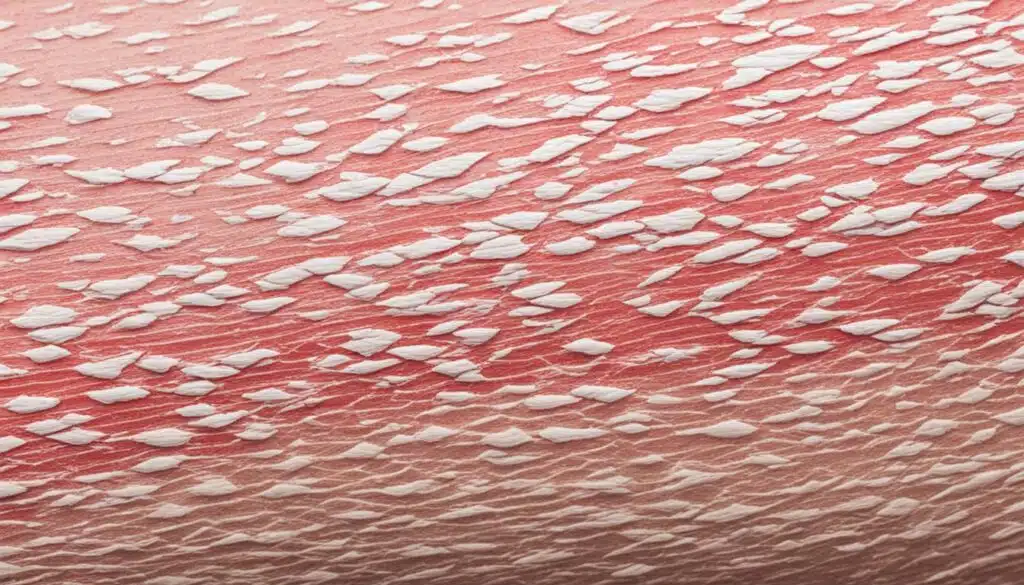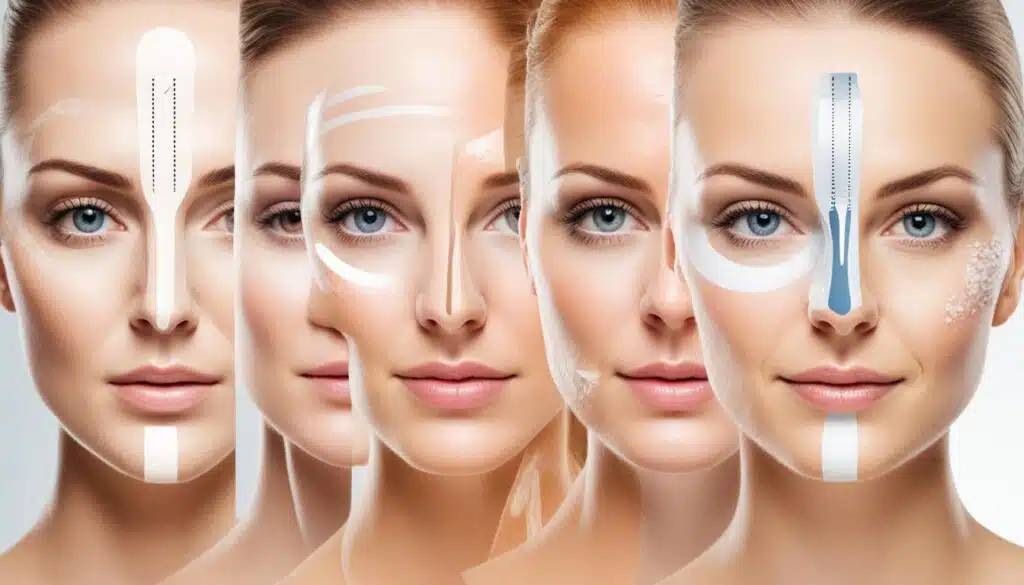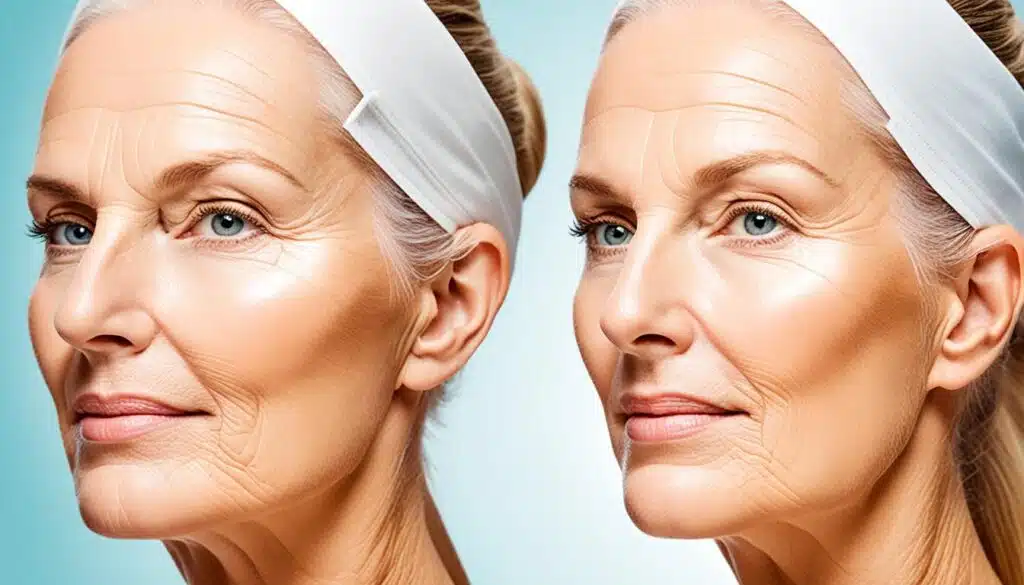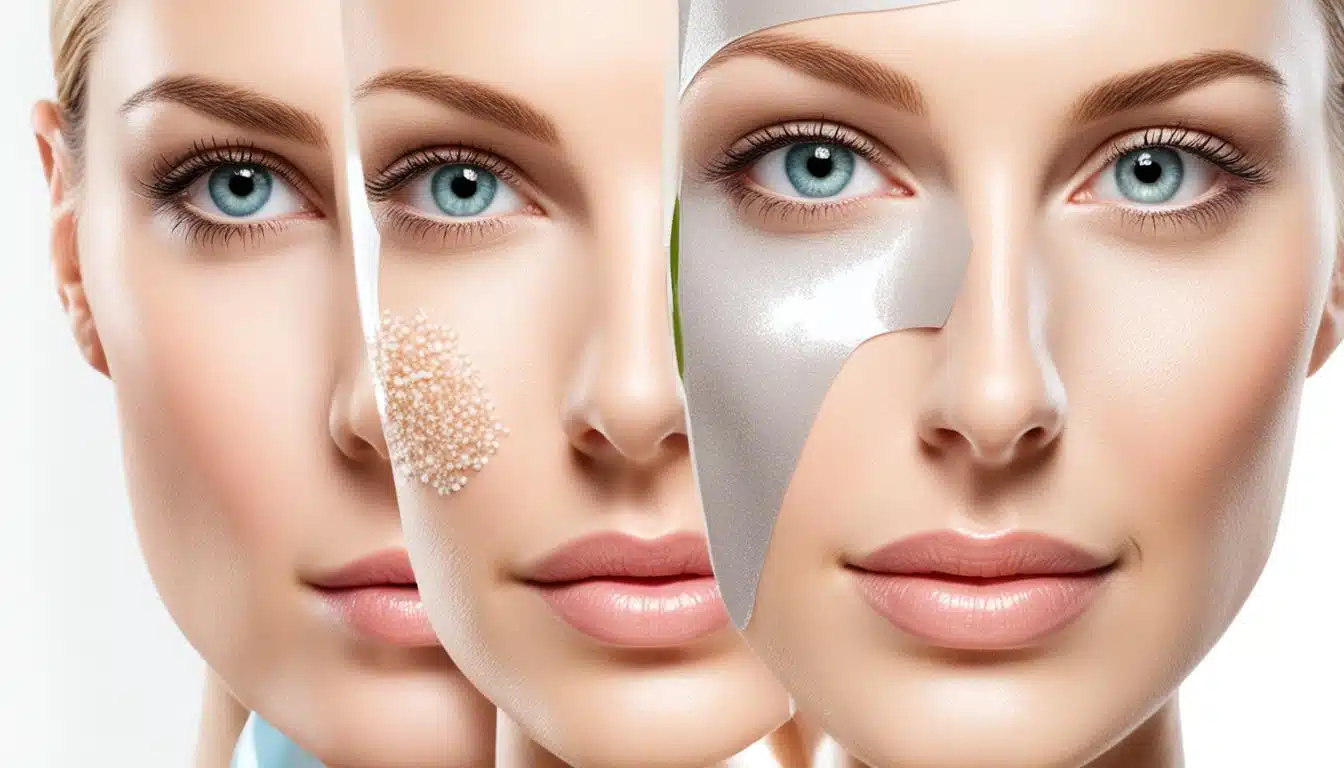The skin is our body’s largest organ, and its health and appearance are crucial to our overall well-being. One of the key factors in achieving ageless beauty is maintaining a strong skin barrier. But what exactly is the skin barrier, and why is it so important?
The skin barrier, also known as the stratum , is the outermost layer of the skin that acts as a protective shield against external aggressors such as environmental pollutants, bacteria, and moisture loss. It plays a critical role in maintaining hydration, preventing signs of aging, and promoting radiant skin health.
To understand the importance of a strong skin barrier, we need to delve into its function. The skin barrier acts as a barrier between our body and the external environment, preventing harmful substances from entering and locking in moisture.
When the skin barrier is compromised, it can lead to various skin issues such as dryness, sensitivity, and accelerated aging. Therefore, taking care of your skin barrier is essential for maintaining healthy and ageless skin.
Key Takeaways
- A strong skin barrier is crucial for maintaining healthy and radiant skin.
- The skin barrier acts as a protective shield against external aggressors and prevents moisture loss.
- When the skin barrier is compromised, it can lead to dryness, sensitivity, and signs of aging.
- Caring for your skin barrier is essential for achieving ageless beauty.
- Stay tuned as we explore the role of the skin barrier in more detail and provide expert tips on promoting a strong and healthy skin barrier.
Understanding the Skin Barrier: What You Need to Know
When it comes to achieving healthy and radiant skin, understanding the skin barrier is crucial. The skin barrier, located in the outermost layer of the epidermis, plays a vital role in protecting our skin from external factors such as pollution, UV radiation, and pathogens. To gain a deeper insight into the skin barrier, let’s explore its structure, common conditions that affect it, and the role of lipids and creams in maintaining its health.
The Importance of the Stratum Corneum
The stratum corneum is the uppermost layer of the epidermis and forms a crucial part of the skin barrier. Composed of dead skin cells and lipids, it acts as a protective shield against water loss and harmful substances. The stratum corneum acts as a barrier between our body and the environment, regulating moisture levels and preventing dehydration.
Common Conditions Affecting the Skin Barrier
One common condition that can disrupt the integrity of the skin barrier is atopic dermatitis, also known as eczema. Atopic dermatitis is characterized by dry, itchy, and inflamed skin, making it more susceptible to damage. The compromised skin barrier in atopic dermatitis allows irritants and allergens to penetrate, triggering flare-ups and further inflammation. Understanding the impact of atopic dermatitis helps individuals proactively manage their skin’s health and prevent future complications.
The Role of Lipids and Creams in Skin Protection and Nourishment
Lipids are an essential component of the skin barrier as they help maintain its integrity and prevent water loss. They form a protective layer that locks in moisture, keeps the skin hydrated, and prevents the entry of harmful substances. Creams, specifically formulated with lipids and other beneficial ingredients, can provide additional nourishment to the skin barrier. Using creams can replenish the skin’s natural lipid levels, enhance its protective function, and promote overall skin health.
Did you know? Lipids in creams can help repair and strengthen the skin barrier by restoring its natural protective function. Look for creams that contain ceramides, fatty acids, and other lipid-rich ingredients to nourish and protect your skin.
Understanding the skin barrier and its components is essential for maintaining healthy, glowing skin. By nourishing and protecting the stratum corneum with the right skincare routine and lipid-rich creams, you can support your skin’s barrier function and achieve optimal skin health.
Essential Ingredients for Skin Barrier Health
When it comes to maintaining a healthy skin barrier, certain key ingredients play a crucial role. Ceramides, fatty acids, and moisturizers are essential components that contribute to barrier repair and overall skin health.
The Power of Ceramides
Ceramides are natural lipids found in the outermost layer of the skin, known as the stratum corneum. They play a vital role in maintaining skin hydration and protecting against external irritants. Ceramides help strengthen the skin barrier by providing a protective barrier that prevents moisture loss and keeps the skin plump and supple.
When the skin lacks ceramides, it may become dry, sensitive, and prone to irritation. Using skincare products enriched with ceramides can help replenish and restore the skin’s natural protective barrier, promoting optimal skin health.
The Role of Fatty Acids
Fatty acids are another essential ingredient for a healthy skin barrier. These lipid molecules help maintain the integrity of the skin barrier and regulate its function. Omega-3 and omega-6 fatty acids, in particular, are known for their anti-inflammatory properties, promoting a calm and balanced complexion.
By incorporating skincare products containing fatty acids into your routine, you can nourish the skin and support barrier repair. Look for ingredients such as linoleic acid, linolenic acid, and oleic acid to enhance the health and resilience of your skin barrier.
The Importance of Moisturizers
Moisturizers are vital for maintaining a strong and healthy skin barrier. They work by providing hydration, restoring moisture balance, and preventing water loss from the skin. Moisturizers also help seal in other beneficial ingredients, such as ceramides and fatty acids, promoting their effectiveness.
When choosing a moisturizer for barrier repair, opt for products with hydrating ingredients like hyaluronic acid and glycerin. These humectants attract and retain moisture, ensuring your skin stays hydrated throughout the day.
Choosing the Right Products
When it comes to selecting skincare products for barrier repair, it’s essential to consider your skin type and individual needs. Look for labels that mention “ceramide-enriched” or “barrier repair” to ensure you’re using products specifically formulated for this purpose.
Additionally, pay attention to the ingredient list and prioritize products that contain ceramides, fatty acids, and moisturizing agents. Avoid products that contain harsh chemicals or potential irritants, as these can compromise the skin barrier and lead to further damage.
Consulting a dermatologist can also provide valuable guidance in selecting the right products tailored to your skin type and concerns.
| Key Ingredients | Benefits |
|---|---|
| Ceramides | Strengthens the skin barrier, prevents moisture loss, and maintains hydration |
| Fatty Acids | Regulates skin barrier function, reduces inflammation, and promotes a balanced complexion |
| Moisturizers | Provides hydration, restores moisture balance, and prevents water loss |
Signs of a Compromised Skin Barrier
A compromised skin barrier can lead to various skin issues and concerns. Recognizing the signs and symptoms is crucial to addressing the problem effectively. Here are some common indicators of a compromised skin barrier:
- Dry skin: Dry skin is a telltale sign that your skin barrier is damaged. When the barrier is compromised, it fails to retain moisture, resulting in dry, flaky, and sometimes itchy skin.
- Barrier damage: Visible signs of barrier damage, such as redness, inflammation, and sensitivity, are key indicators that your skin barrier is not functioning properly.
- Water loss: If you notice increased water loss from your skin, it may be a sign that your skin barrier is compromised. Your skin may feel dehydrated and lack the natural plumpness and elasticity.
- Compromised skin: Overall, you may experience compromised skin health, including increased sensitivity, a dull complexion, and a higher susceptibility to environmental irritants and allergens.
Addressing a compromised skin barrier is essential for restoring skin health and preventing further damage. By recognizing these signs early on, you can take the necessary steps to repair and strengthen your skin barrier.
“Recognizing the signs of a compromised skin barrier is the first step towards restoring skin health and achieving a radiant complexion.”

Evaluating the Severity of a Compromised Skin Barrier
In some cases, the signs of a compromised skin barrier may be mild, while in others, the damage may be more severe. It is essential to assess the severity of the condition to determine the appropriate course of action. If you are unsure about the state of your skin barrier, it is always recommended to consult a dermatologist or skincare professional for a thorough examination.
| Severity Level | Signs and Symptoms |
|---|---|
| Mild | – Dry and slightly flaky skin – Occasional redness or sensitivity – Minimally increased water loss |
| Moderate | – Dry and flaky skin – Increased redness and inflammation – Heightened sensitivity to skincare products – Noticeable water loss |
| Severe | – Intensely dry, cracked, or scaly skin – Persistent redness and inflammation – Severe sensitivity and discomfort – Significant water loss |
Evaluating the severity can help guide you towards the most suitable skincare routine and products for your specific needs. With the appropriate approach, you can restore your skin barrier and achieve healthier, more resilient skin.
Understanding Your Skin Type and its Impact on the Barrier
When it comes to skincare, understanding your skin type is key to maintaining a healthy and resilient skin barrier. Different skin types have unique characteristics that require tailored care and attention. Whether you have sensitive skin or naturally healthy skin, recognizing and addressing your specific needs can make a significant difference in the overall health and appearance of your skin.
Skin type: The first step in understanding your skin type is to determine whether you have sensitive skin or naturally healthy skin. Sensitive skin is more prone to irritation, redness, and reactions to various products, while healthy skin tends to be more resilient and less reactive.
Sensitive skin: If you have sensitive skin, it’s essential to choose gentle skincare products that are specifically formulated for sensitive skin types. Look for products that are free from common irritants, such as fragrances and harsh chemicals. Additionally, be mindful of your skincare routine and avoid over-exfoliating or using aggressive skincare techniques that can further irritate your skin.
Healthy skin: Even if you have naturally healthy skin, it’s crucial to maintain a consistent skincare routine to preserve and enhance your skin barrier. Focus on using products that support hydration and nourishment, such as moisturizers and serums enriched with skin-loving ingredients like hyaluronic acid and antioxidants.
“By understanding your skin type and its specific needs, you can make informed decisions about the products and techniques that will help your skin thrive.”
H3: Tailoring your skincare routine to your skin type
Once you have identified your skin type, it’s time to tailor your skincare routine to address your specific needs. Here are some general guidelines to help you get started:
- Cleansing: Use a gentle cleanser that is suitable for your skin type. Avoid harsh soaps or cleansers that can strip away moisture and disrupt your skin barrier.
- Moisturizing: Regardless of your skin type, moisturizing is crucial to maintaining a healthy skin barrier. Choose a moisturizer that is appropriate for your skin type, whether it’s a lightweight lotion for oily skin or a richer cream for dry skin.
- Sun protection: Protecting your skin from the sun is essential for overall skin health. Use a broad-spectrum sunscreen with at least SPF 30 every day, regardless of your skin type.

Protecting and Repairing the Skin Barrier
When your skin barrier is damaged, it can lead to a variety of skin issues, including dryness, irritation, redness, and even premature aging. Fortunately, there are several strategies you can incorporate into your skincare routine to protect and repair the skin barrier, promoting healthy and glowing skin.
1. Avoid Harsh Cleansers: Cleansing your skin is essential, but using harsh cleansers can strip away the natural oils and compromise your skin barrier. Opt for gentle cleansers that maintain the skin’s pH balance and preserve its protective layer.
2. Moisturize Regularly: A key step in protecting and repairing the skin barrier is ensuring proper hydration. Moisturizers help lock in moisture, strengthen the skin’s barrier function, and prevent water loss. Look for moisturizers containing ingredients like ceramides and hyaluronic acid.
3. Protect from UV Damage: The sun’s harmful UV rays can further damage your skin barrier. Make sure to apply a broad-spectrum sunscreen with SPF 30 or higher daily, even on cloudy days.
4. Be Mindful of Exfoliation: Exfoliating can help remove dead skin cells, but it’s crucial to do it in moderation. Over-exfoliation can cause micro-tears in the skin, weakening the barrier. Limit exfoliation to once or twice a week, using gentle exfoliants.
5. Use Barrier Repair Products: Look for skincare products specifically designed to repair the skin barrier. These products often contain ingredients such as niacinamide, peptides, and antioxidants, which promote barrier restoration and overall skin health.
“Protecting and repairing the skin barrier is crucial for achieving healthy, radiant skin. By incorporating these strategies into your skincare routine, you can restore and maintain your skin’s natural protective barrier.”
Protect and Repair Infographic
| Strategy | Benefits |
|---|---|
| Avoid Harsh Cleansers | Preserves natural oils and pH balance |
| Moisturize Regularly | Locks in moisture and strengthens barrier function |
| Protect from UV Damage | Prevents further damage from harmful UV rays |
| Be Mindful of Exfoliation | Gently removes dead skin cells without damaging the barrier |
| Use Barrier Repair Products | Promotes barrier restoration and overall skin health |
The Role of the Skin Barrier in Aging and Skin Cancer
The skin barrier plays a crucial role in the aging process and the development of skin cancer. Understanding this relationship is essential in maintaining youthful and healthy skin. Let’s explore how the barrier functions in relation to these issues and delve into the importance of skin barrier repair.
“A strong and intact skin barrier is vital for protecting the skin from external aggressors and maintaining its overall health and integrity.”
As we age, the skin undergoes natural changes that can lead to skin aging. The skin barrier, composed of the stratum corneum, serves as the body’s first line of defense against environmental stressors and water loss. When the barrier is compromised, skin aging can occur at an accelerated rate.
In addition to protecting against skin aging, the skin barrier also plays a critical role in preventing skin cancer. Studies have shown that a healthy barrier functions as a protective shield, reducing the risk of DNA damage and mutations that can lead to skin cancer.
By understanding the connection between the skin barrier and these conditions, we can better address the underlying causes and take proactive steps to maintain the health of our skin.
The Effects of Barrier Dysfunction
When the skin barrier is compromised, several effects can occur, contributing to both skin aging and an increased risk of skin cancer:
- Increased skin aging due to heightened water loss, resulting in dryness, fine lines, and wrinkles.
- Reduced protection against harmful UV radiation, which can lead to DNA damage and mutations.
- Impaired repair and regeneration processes, inhibiting the skin’s natural ability to heal and replenish itself.
It’s important to note that barrier function can be affected by various factors, including genetics, environmental exposure, and lifestyle choices. Understanding these aspects can help us take targeted measures to maintain and repair our skin barrier.

The Importance of Skin Barrier Repair
To promote healthy and youthful skin, it is crucial to focus on barrier repair. Restoring the integrity and function of the skin barrier can help mitigate the effects of skin aging and reduce the risk of skin cancer.
Barrier repair involves replenishing essential lipids, such as ceramides and fatty acids, which are vital components of the skin’s protective barrier. By using skincare products that support barrier repair, like moisturizers and barrier creams, we can strengthen and enhance our skin’s natural defense mechanisms.
By prioritizing skin barrier repair and incorporating targeted skincare regimens into our daily routines, we can support the longevity of our skin health, maintain a youthful appearance, and reduce the risk of skin cancer.
| Benefits of Skin Barrier Repair | Actions for Effective Repair |
|---|---|
| Promotes hydration and moisture retention | Use moisturizers containing ceramides and hyaluronic acid |
| Reduces the appearance of fine lines and wrinkles | Incorporate anti-aging serums with active ingredients like retinol |
| Enhances skin’s natural defense mechanisms | Choose skincare products with antioxidants and SPF protection |
| Supports overall skin health and radiance | Frequent exfoliation and gentle cleansing to remove impurities |
Maintaining a Healthy Skin Barrier: Best Practices
Keeping your skin barrier in optimal condition is key to achieving and maintaining healthy skin. By incorporating a few simple practices into your skincare routine, you can promote skin health, protect against damage, and enhance your overall complexion. Here are some tips to help you maintain a healthy skin barrier:
1. Stick to a Consistent Skincare Routine
A regular skincare routine is essential for maintaining a healthy skin barrier. Cleanse your face twice a day with a gentle cleanser to remove impurities without stripping away natural oils. Follow up with a toner to balance the skin’s pH level and prepare it for better product absorption. Apply a moisturizer suited to your skin type to keep the barrier hydrated and protected throughout the day.
2. Hydrate, Hydrate, Hydrate
Proper hydration is crucial for maintaining the health of your skin barrier. Drink plenty of water throughout the day to keep your skin hydrated from within. Additionally, incorporating a hydrating serum or mist into your skincare routine can provide an extra boost of moisture to support the barrier’s function. Moisturizing from the inside out and outside in is the key to maintaining optimal skin health.
3. Choose the Right Lotion
Lotions play a vital role in supporting skin barrier health. Look for lotions that contain nourishing ingredients like ceramides and fatty acids, as these help to restore and strengthen the barrier. Choose a lotion that is formulated for your specific skin type to ensure it effectively addresses your skin’s needs.
Additionally, be mindful of the ingredients in your lotions. Avoid products that contain harsh chemicals or fragrances that can potentially irritate or damage the skin barrier. Opt for gentle and hypoallergenic options that promote long-term skin health.
4. Protect Your Skin from Environmental Stressors
Environmental factors can weaken your skin barrier over time. Protect your skin by wearing sunscreen daily to shield it from harmful UV rays. Additionally, consider using moisturizers or serums that contain antioxidants to combat free radicals and environmental aggressors that can damage the skin barrier.
5. Avoid Over-Exfoliating
Exfoliation is beneficial for removing dead skin cells and promoting cell turnover. However, over-exfoliating can strip away the protective layers of the skin barrier, leaving it vulnerable. Limit exfoliation to once or twice a week and choose gentle exfoliants to avoid damaging the barrier.
By incorporating these best practices into your skincare routine, you can maintain a healthy skin barrier, leading to improved skin health and a radiant complexion.
| Benefits of Maintaining a Healthy Skin Barrier | Tips for Maintaining a Healthy Skin Barrier |
|---|---|
| Increased skin hydration | Stick to a consistent skincare routine |
| Reduced water loss from the skin | Hydrate your skin from within by drinking water |
| Enhanced protection against environmental stressors | Choose lotions with nourishing ingredients like ceramides and fatty acids |
| Improved overall skin health and complexion | Protect your skin from UV rays and free radicals |
| Avoid over-exfoliating |
Recognizing and Treating Barrier Dysfunction in Atopic Dermatitis
In patients with atopic dermatitis, barrier dysfunction plays a significant role in exacerbating symptoms and overall skin health. Recognizing the symptoms of skin barrier damage is crucial for effective treatment and management of this condition.
Common Symptoms of Skin Barrier Damage
Patients with atopic dermatitis often experience several symptoms indicative of skin barrier dysfunction. These may include:
- Severe dryness and rough texture of the skin
- Redness and inflammation
- Itching and discomfort
- Burning or stinging sensations
- Increased sensitivity to irritants
It’s important for healthcare professionals to carefully assess these symptoms and evaluate their impact on the patient’s quality of life to tailor appropriate treatment strategies.
Treatments and Management Strategies
When treating barrier dysfunction in atopic dermatitis, a comprehensive approach is necessary to address both the underlying causes and the symptoms. Here are some effective treatments and management strategies:
- Topical Steroids: Topical corticosteroids may be prescribed to reduce inflammation, relieve itching, and promote barrier repair.
- Moisturizers: Regular and frequent application of moisturizers helps replenish hydration, soothe the skin, and improve barrier function. Look for products that contain ceramides, which help restore the skin’s natural barrier.
- Antihistamines: Antihistamines can help manage itching and reduce inflammation, improving overall comfort and quality of life.
- Wet Wrap Therapy: This technique involves applying a damp layer of clothing or bandages over topical medications or moisturizers to increase their efficacy and enhance barrier repair.
- Lifestyle Modifications: Identifying and avoiding triggers such as certain fabrics, harsh chemicals, or extreme temperatures can minimize flare-ups and protect the skin barrier.
It’s important to note that each patient’s condition is unique, and treatment plans should be tailored to their specific needs. Consultation with a dermatologist or healthcare professional is vital to ensure appropriate diagnosis and treatment.
Key Takeaways
Barrier dysfunction in atopic dermatitis can significantly impact patient well-being. Recognizing the symptoms of skin barrier damage, such as severe dryness, inflammation, and itching, is crucial in developing effective treatment plans. Through a combination of topical medications, moisturizers, antihistamines, wet wrap therapy, and lifestyle modifications, healthcare professionals can help patients with atopic dermatitis manage their condition and improve the health of their skin barrier.
Promoting Barrier Repair and Restoration
The skin barrier plays a crucial role in protecting your skin from external stressors and maintaining its health and vitality. However, various factors can compromise this protective barrier, leading to dryness, irritation, and other skin issues. In this section, we will explore techniques and products that can help restore and repair your skin barrier, ensuring its optimal functioning.
Tips for Protecting the Skin Barrier
- Limit exposure to harsh chemicals and irritants that can strip away the natural oils and disrupt the skin barrier.
- Use gentle cleansers and avoid hot water, which can further dehydrate the skin.
- Apply sunscreen daily to shield your skin from harmful UV rays, which can weaken the protective barrier.
By implementing these protective measures, you can prevent further damage to your skin barrier and create an environment that promotes repair.
Products to Restore Your Skin Barrier
When it comes to restoring your skin barrier, certain ingredients and products can be particularly beneficial. Look for skincare products that contain:
- Ceramides: These lipids help strengthen and replenish the skin barrier, restoring its protective function.
- Fatty Acids: Found in oils and moisturizers, fatty acids nourish and hydrate the skin, supporting barrier repair.
- Niacinamide: This powerful ingredient helps improve the skin barrier’s resilience and reduces moisture loss.
Incorporating these products into your skincare routine can help restore your skin barrier, improve hydration, and promote overall skin health.
Additionally, maintaining a consistent moisturizing routine is crucial for barrier repair. Look for lotions and creams specifically formulated to support the skin’s protective barrier. Apply them liberally to lock in moisture and create a barrier against external aggressors.
“The skin barrier acts as a protective shield, preventing water loss and keeping your skin healthy and hydrated. By restoring and repairing this barrier, you can achieve a smoother, more resilient complexion.” – Dr. Ava Shamban, board-certified dermatologist
Remember to be patient in your journey to restore your skin barrier. Results may take time, and consistency is key. By implementing these protective measures and incorporating the right products into your skincare routine, you can promote barrier repair and restore your skin’s natural defenses.
Science Behind the Skin Barrier: Facts You Should Know
Understanding the science behind the skin barrier is crucial for comprehending its essential functions and the consequences of barrier dysfunction. Let’s delve deeper into the fascinating world of human skin and explore the fundamental aspects of the skin barrier.
The Basics of Human Skin
Human skin is a remarkable organ that serves as a protective shield for our body. It is composed of three primary layers: the epidermis, dermis, and hypodermis. The outermost layer, the epidermis, is responsible for creating and maintaining the skin barrier.
The Skin Barrier: A Complex Structure
The skin barrier, also known as the stratum corneum, is a complex structure that acts as a shield against external factors such as pollutants, microorganisms, and UV radiation. It is composed of densely packed dead skin cells held together by lipids, which form a protective barrier on the skin’s surface.
Also Read :- From Grease To Glam: Elevate Your Skincare Routine With Oily Skin Solutions
The is not just a physical barrier. It also regulates water loss, prevents dehydration, and maintains optimal skin hydration. Furthermore, the skin barrier plays a crucial role in maintaining the skin’s pH balance and regulating the entry of substances into the skin.
The Essential Functions of the Skin Barrier
The skin barrier is basically a fortress that keeps our skin healthy and protected. Its primary functions include:
- Preventing excessive water loss, maintaining skin hydration and moisture level
- Protecting against environmental aggressors such as bacteria, viruses, and allergens
- Maintaining the skin’s pH balance
- Regulating the entry of substances into the skin, allowing only essential nutrients and blocking harmful components
The Consequences of Skin Barrier Dysfunction
When the skin barrier is compromised or damaged, it can lead to various issues such as dryness, sensitivity, and accelerated aging. Skin barrier dysfunction can manifest as conditions like eczema, psoriasis, or atopic dermatitis, where the skin’s ability to retain moisture and protect against external aggressors is impaired.
Furthermore, a weakened or dysfunctional skin barrier may give rise to excessive water loss, increased skin sensitivity, and a higher risk of infection and inflammation. Therefore, maintaining a healthy skin barrier is essential for overall skin health and well-being.
| Fact | Explanation |
|---|---|
| Fact 1 | The skin barrier is comprised of dead skin cells and lipids. |
| Fact 2 | The skin barrier prevents excessive water loss and maintains skin hydration. |
| Fact 3 | Skin barrier dysfunction can lead to dryness, sensitivity, and accelerated aging. |
| Fact 4 | The skin barrier regulates the entry of substances into the skin. |
Conclusion
Understanding and caring for your skin barrier is crucial for maintaining healthy and ageless skin. The skin barrier plays a vital role in maintaining hydration, preventing aging, and achieving radiant skin health. By following the expert tips and insights provided in this article, you can strengthen your skin barrier and promote a youthful complexion.
Throughout this article, we explored the structure and function of the skin barrier, the essential ingredients for barrier health, and ways to recognize and address a compromised barrier. We also discussed the impact of different skin types and the role of the barrier in aging and skin cancer. It is clear that maintaining a healthy skin barrier is key to maintaining overall skin health.
To maintain a healthy skin barrier, it is important to establish a consistent skincare routine that includes proper hydration and the use of suitable products. By choosing products with key ingredients like ceramides and fatty acids, you can support barrier repair and nourish your skin.
By prioritizing your skin barrier and following the advice provided in this article, you can achieve a stronger, healthier skin barrier and enhance your natural beauty for years to come.
FAQs
Q: What is a skin barrier and why is it important?
A: The skin barrier, also known as the epidermal barrier, is the top layer of your skin that protects from external aggressors. It plays a crucial role in maintaining your skin’s health and preventing moisture loss.
Q: How can I tell if my skin barrier is damaged?
A: You can tell if your skin barrier is damaged if your skin looks dull, feels tight, is easily irritated, or experiences increased sensitivity.
Q: How can I repair my skin barrier if it’s damaged?
A: To repair your damaged skin barrier, focus on using gentle skincare products, avoid harsh chemicals, incorporate barrier repair therapy products, and maintain a healthy skin care routine.
Q: What are some tips to protect your skin barrier?
A: Protect your skin barrier by using products with balanced pH levels, avoiding over-exfoliation, staying hydrated, and using a moisturizer to keep your skin barrier intact.
Q: How do external factors like pollution and UV rays damage your skin barrier?
A: External factors like pollution and UV rays can disrupt the skin barrier and cause damage by stripping away natural oils, affecting the skin’s pH balance, and penetrating deeper layers of the skin.
Q: Why is it important to repair and maintain a healthy skin barrier?
A: Repairing and maintaining a healthy skin barrier is essential for overall skin health, as it helps prevent moisture loss, protects from environmental stressors, and maintains a youthful appearance.
Q: What are some signs that your skin is dehydrated and how does it relate to the skin barrier?
A: Signs of skin dehydration include feeling tight, itchy, or having fine lines. Dehydration can compromise the skin barrier, leading to increased sensitivity and a higher risk of damage.





